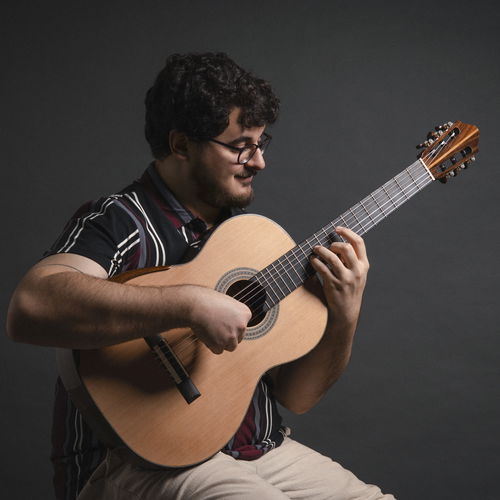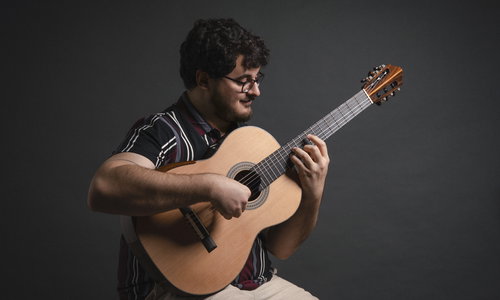Spanish Guitar
Details
Octavio Deluchi full profile / Solo Guitar / 1 musician
Full program notes
Undoubtedly, Spain is one of the most important countries in what concerns the classical guitar. Their culture for the instrument started in the Renaissance, and their legacy is present until contemporary times. This program presents four major pieces representing different time periods and how they influenced the newer generations of composers.
As the starting point, the 19th-century Aguado presents what was going to be transformed in order to be recognized as the “Spanish Flavor”. Aguado was one of the most important composers from the classical and romantic periods for the guitar, and a true virtuoso of his instrument. He delivers incredibly fast scales, arpeggios, and cantabile melodies, utilizing the entire palette of colors of the guitar, enhanced by a very dramatic opening.
After Aguado, the following generation was crucial in the 20th century for the guitar as we know it nowadays. Here, Francisco Tárrega pays homage to the historical Iberian influences in the title of the composition and sets the tone for the next composers. In a short piece, Tárrega searches for beauty in different keys with a melodic material that transforms itself at the same time maintains its core. One of Tarrega’s most relevant pupils, Llobet, also demonstrates that with this treatment of the melody. Both pieces present wonderful lines treated as precious stones as they are. No listener can pass by with their ears unattended in both compositions.
Joaquin Rodrigo conveys the most recognizable “Spanish Flavor” of this program. With three Spanish pieces, it is a manual of how a composer can blend creativity, popular Spanish folk influences, and tradition in the same work. “Fandango” is a pompous dance, with all its lightness and virtuosity on the fretboard. “Passacaglia” is a slow dance, developed with a chord sequence that could not be more recognized within the Spanish context. It ends with powerful rasgueados and a short fugue. “Zapateado” brings the dance to the guitar fretboard, with unique movements of the left hand and one of the most famous guitar passages.
To conclude the program, Sergio Assad represents an example of how Spanish music and repertoire have influenced other composers until nowadays. One of the most important composers of the instrument alive, Assad is well inspired by names such as Albeniz or Mompou for his travel through different regions of Spain in “Asturiana”, “Valenciana” and “Andaluz”.
Program:
Dionisio Aguado y Garcia - Andante y Rondó Op. 2 nº 4
Francisco Tárrega - Capricho Árabe
Miguel Llobet - El Testament D’Amelie
Joaquin Rodrigo - Tres Piezas Espanolas
I - Fandango
II - Passacaglia
III - Zapateado
Sergio Assad - Spanish Impressions
I - Asturiana
II - Valenciana
III - Andaluz
Videos from this player
Audio from this player
Heitor Villa-Lobos - Etude nº 7 (Octávio Deluchi) - Live
Luigi Legnani - Caprice nº 7 (Octávio Deluchi)
Heitor Villa-Lobos - Prelude nº 2 (Octávio Deluchi)
Other programs from this ensemble
- Musician profile: Octavio Deluchi
-
Instruments: Solo Guitar
- Musician profile: Octavio Deluchi
-
Instruments: Solo Guitar

 Continue with Facebook
Continue with Facebook
 Continue with Google
Continue with Google
 Continue with Apple
Continue with Apple
